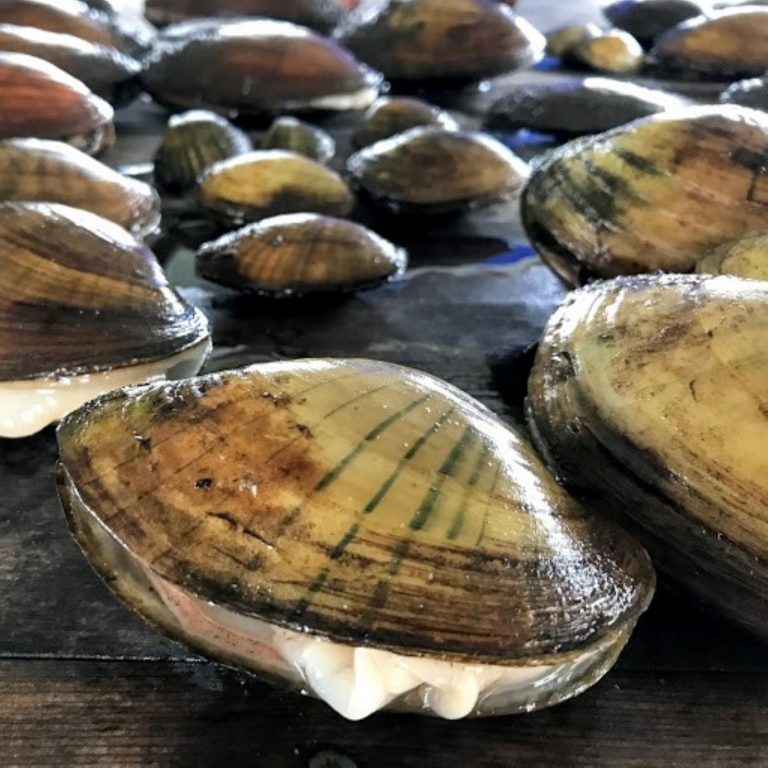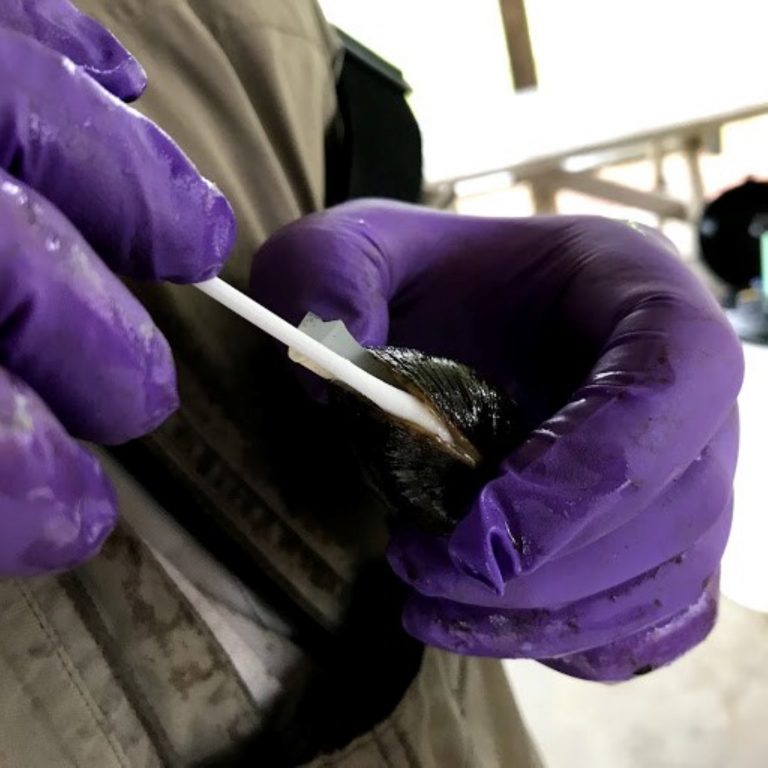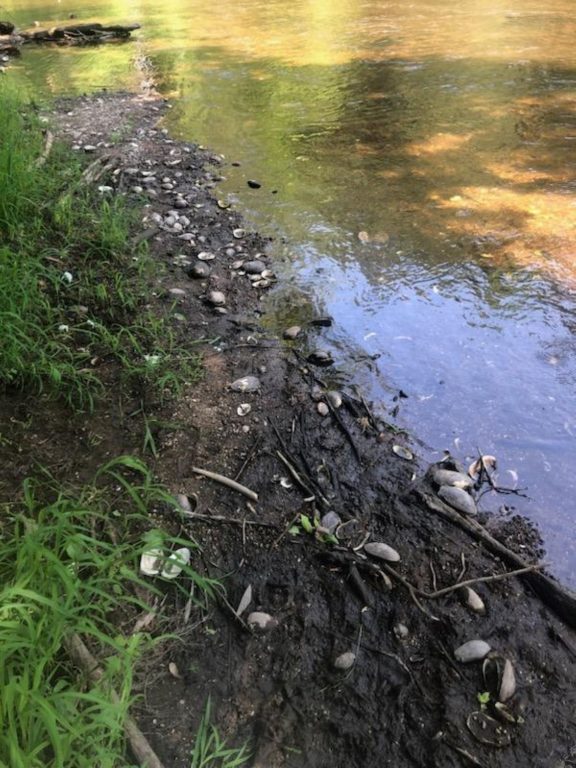Mass Die-Off of Freshwater Mussels in Wisconsin Yields Discovery of New Parasite
Researchers found female mussels infected with a parasitic fungus that was previously undetected.

Researchers sampled various mussel species on the Embarrass River in 2018 to investigate mass die-offs there. Photo courtesy of the U.S. Fish and Wildlife Service
Researchers have discovered a new parasite in freshwater mussels after investigating hundreds of mussels that died along the Embarrass River in Shawano County six years ago.
The findings were recently published in the international, peer-reviewed journal Parasitologia. Researchers with the U.S. Fish and Wildlife Service, the U.S. Geological Survey and Wisconsin Department of Natural Resources were among agencies that collaborated to study the mass die-off in 2018. Biologists observed sick mussels lying on their sides on the surface of the river with open shells when they’re normally buried in the river bottom.
Researchers examined 29 mussels from six different species within the river. They then cut them in half and examined the organs of some samples to see if the mussels were healthy or diseased.
Eric Leis, a fish biologist with the La Crosse Fish Health Center, said samples showed a new parasitic fungus among females in three species, including mucket, fatmucket and plain pocketbook mussels.
Leis said the microsporidian parasite, which researchers named Hirsutonosema embarrassi, had infected developing eggs in the ovaries of those mussels.
“The egg is basically being replaced by this microsporidian, which has implications as far as whether or not these eggs can survive,” Leis said.
While it’s unlikely the parasite led to the mass die-off, Leis said the parasitic fungus could impact reproduction and mussel survival.
“Which is significant given that many mussel species are declining,” Leis said.

A researcher swabs a freshwater mussel as part of a study investigating a mass die-off in the Embarrass River. Photo courtesy of the U.S. Fish and Wildlife Service
North America is home to around 300 of the world’s 1,200 species of freshwater mussels, many of which are at risk. Around two-thirds of freshwater mussel species in North America are threatened or vulnerable. Jordan Richard is a biologist with the endangered species program in the U.S. Fish and Wildlife Service.
“In North America, 10 percent of the species have gone extinct in the last 100 years or so mostly due to human activities and habitat destruction and pollution,” Richard said.
Even so, Richard said little has been known about the health of mussels and why they’re dying. He said they’re trying to figure out the reason for their decline and avoid introducing infected mussels into hatcheries that are working to restore their numbers.
As part of their research, Richard said they did genetic sequencing that used what he called fingerprint genes to identify the microsporidian parasite. Leis noted such infections are typically tied to hosts with immune systems that are compromised or unable to fight off disease.
“We’re not sure if there’s something stressful in the environment or what exactly is stressing the mussel to cause this heavy type of infection,” Leis said.
When mysterious die-offs occur, Richard said the culprit is often disease. However, he noted a mix of factors tend to play a role. He likened it to the COVID-19 virus that has killed more than 7 million people worldwide since the onset of the pandemic in 2020. While many lives have been lost, he noted most people survive the disease, adding that preexisting conditions often factor into those who are more vulnerable to the virus.
“The same thing is happening with mussels, and there’s just all these things going on out there. There’s contaminants, there’s sedimentation, there’s water quality, there’s declining populations, there’s parasites, viruses, there’s bacteria,” Richard said. “They all sort of work together.”

Sick mussels were found lying on the surface of the Embarrass River in 2018. Researchers found they were infected with a parasite. Photo courtesy of the U.S. Fish and Wildlife Service
Researchers say that’s significant because mussels are incredibly important for healthy functioning ecosystems and clean water. He noted mussels are filter feeders that live on the bottom of waterways, calling them the livers of the rivers. Leis said that means they filter out things like bacteria, viruses and contaminants in an effort to purify the water.“They’re coming into contact with everything we put down our drains, on our fields, everything like that. So, they come into contact with a lot of possible stressors,” Leis said.
Researchers say discovery of the parasite is significant because they can now screen for it and develop tools to find disease-free mussels that can be used in restoration efforts. They plan to expose mussels to the microsporidian parasite in a lab to determine what the course of infection looks like and whether mussels will ultimately die.
Leis said the larger goal is to raise healthy mussels that can be released into rivers where their numbers are declining.
Richard added it’s important to know such parasites exist, so they’re not bringing infected mussels into hatcheries or spreading them to other rivers.
“There’s a lot of work that goes into making sure that, when you go out to the river, there’s healthy fish and mussels and birds and everything else around it,” Richard said. “This is what it takes to keep that going.”
Mass die-off of freshwater mussels in Wisconsin leads to discovery of new parasite was originally published by Wisconsin Public Radio.
If you think stories like this are important, become a member of Urban Milwaukee and help support real, independent journalism. Plus you get some cool added benefits.






















Is this parasitic fungus affecting the alien mussel species in the Lake Michigan, or just of those habitating the Embarrass River shed?